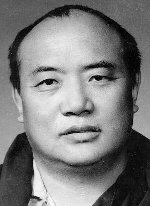![[Main ROKPA Homepage]](images/anilonew.gif)





 |
HH the 16th Gyalwa Karmapa (left) Rangjung Rikpi Dorje (1923-1981) and (right) his reincarnation, |
 |
 |
The 9th Goshir Gyaltsabpa (left) at present nurturing the Karmapa seat at Rumtek and
|
 |
The main point of the Kagyu lineage is to have maintained perfectly intake the original vajrayana teachings given by Buddha Vajradhara to Saraha, Tilopa and other great Indian masters. This has been achieved through an unbroken succession of enlightened masters, each of whom transmitted perfectly the teachings of mahamudra and the 6 Yogas of Naropas to their spiritual heirs. Although these heart-lineages of the Karma Kagyu school are held by many outstanding masters today, the pre-eminent leaders of this tradition are its supreme head, HH the Gyalwa Karmapa and the two regents the 12th Kentin Tai Situpa and the 9th Goshir Gyaltsabpa. The 3rd Palpung Jamgon Kongtrul is also extremely important but is still very young and following his studies. There are in fact quite a few important young reincarnations, such as the Pawo, Kalu, Tringpa and Ongen Rinpoches, and many elder ones, such as the 9th Thrangu Rinpoche, who have brought the dharma to the West and to South East Asia. There is not the space here to describe them all adequately and it would be unfair to speak of some and not of others.